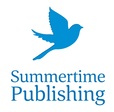|
It’s funny how the right person tends to turn up at exactly the right time. As my friend Fiona said to me the other day, “people magically appear just when you need them – they pop up like bollards”. I think the right messages appear at the right time too. Like, when I need a bit of writing inspiration exactly the words I need to hear appear on the lips of others.
I love poetry and recognize that while a good poem does not have to rhyme, it does have to scan, yet when I am asked to explain exactly what I mean I find it hard to put into words exactly what a ‘good scan’ sounds like. I suppose it’s sort of got the right number of tum-te-tums in each line, so they fit together. But to me that sounds like an amateurish answer. Then, there I was, back in England and a proper paper copy of The Times was in my hand. AA Gill, the critic, was writing, oh joy, not about his usual restaurants and telly but about writing for once. I was stunned to discover that such an esteemed writer was so severely dyslexic that he could not write his own pieces. Instead, I learned that he dictated all his pieces to his secretary. Imagine that? You’d have to be able to speak clearly and slowly and to be sure to speak in perfectly balanced sentences to do that; sentences that fit well together and follow each other so logically that they flow. At the Ways With Words Daily Telegraph literary festival in Dartington, Devon, last month I attended a lecture about Ted Hughes in which one of the speakers started most of his sentences three times. It seemed that he too was searching for the perfect preface to each of his erudite points. Now I believe he was trying to ensure every sentence had rhythm. Gill explained how he believes everything he writes, and he is talking about prose here, should have a rhythm. Not a rhyme, but a rhythm. The tum-te-tum I mentioned earlier. “The most important thing in writing is rhythm,” he writes. “The rhythm of how you read. It’s mostly iambic, which is the easiest and nicest thing. It’s the beat of you walking and talking. The beat of your heart. It’s an internal rhythm that we all have and we all share. You can use that and you can play with it and you can syncopate it. From my writing, I hope that people can hear a voice in their heads. They should hear it as if a person is talking to them.” Ideally, your words should divide up into pairs of syllables, the first one is unstressed and the second stressed. Rather a te-tum te-tum te-tum. Perhaps this is why it is so vital for a writer to read aloud his work towards the end of the editing process? It is only then, when you read aloud that you discover where some of your phrases sound lumpen or out of place and notice the effect of intentional or unintentional alliteration or assonance. It is only at this time that you can truly work out whether repeated phrases, such as the ‘I have a dream’ of Martin Luther King’s speech serve to add beauty and impact or monotony to the text. It is only when reading aloud that you notice when sentences are too long or need commas adding or removing. I have long recognised that poems need rhythm but now AA Gill has endorsed my view that prose needs it too. A surprising benefit In prose, rhythm may be more important still. On the first day of the Ways With Words festival I had the good fortune to hear Terry Waite speak. As the Church of England’s special envoy, he was kidnapped and held hostage in Lebanon by Hamas forces for almost five years, only released in 1991. For much of this time he was held in solitary confinement. Allowed neither pen nor paper and no books to read until before the very end Waite needed to find ways to keep his mind occupied. These were agonising times. Waite told himself that his captors could break his mind and body but would not take his soul. “I was determined not to be robbed of my humanity nor my humour,” he told us. And so he sought ways to find peace. His solution was found in prose that contained the rhythm of which Gill wrote. “Poetry, good language and music has the capacity to bring inner harmony to the common soul,” said Waite. And this is why he found solace in reciting prayers he had come to learn by rote owing to his regular church-going. Prayers from The Book of Common Prayer, which he said had exactly the poetry, good language and music, in other words, the rhythm he required to be soothed. I am grateful to Ways With Words and to AA Gill for reminding me how important it is to read aloud what I write, to tease out its rhythm and in-so-doing, make it memorable. |
�
All the latest news from the team at Summertime Publishing
As an Amazon Associate, we may earn a commission from qualifying purchases. This does not affect the price you pay or your consumer rights.
Archives
June 2024
|

